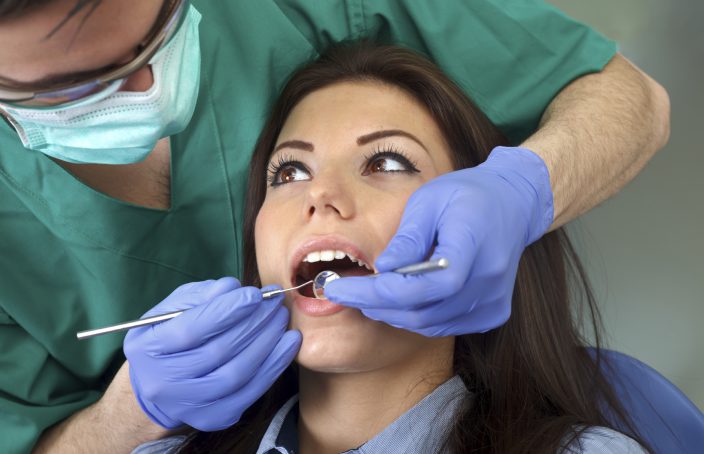Gum disease (also known as periodontal disease) is the 6th most common disease in the world. It is also a common complication in people with diabetes. But the good news is that it can be prevented and easily treated in the early stages of the disease.
Gum disease affects the tissues supporting your teeth, including the bone, and if untreated can eventually lead to discomfort when chewing and tooth loss. It is caused by a coating of bacteria on teeth (dental plaque), which continuously collects around the gum margin.
You may have gum disease if you notice any of the following:
- Bleeding gums when brushing your teeth
- Red, swollen gums
- Persistent bad breath
- Shrinking gums
- Gaps between your teeth
- Loose teeth
Upon experiencing these problems, you should make an appointment to see a dentist for a detailed gum check and further advice and treatment.
How are gum disease and diabetes linked?
A recent survey showed three quarters of people living with diabetes had experienced bleeding gums when brushing, which happens early on in gum disease.
Gum disease and diabetes are linked in both directions, so looking after your mouth is an essential part of living with diabetes.
Firstly, poorly managed blood sugar levels in people living with diabetes can cause damage to blood vessels. This in turn reduces the oxygen and nourishment reaching the gums, making infections of the gums, and bone, more likely. Also uncontrolled blood sugar causes levels of glucose to rise in the mouth. This creates a breeding ground for bacteria, increasing the chance of gum disease. Therefore, keeping your blood glucose levels low and stable can reduce your risk of gum disease.
In the other direction, having gum disease can upset your body’s defence system, which negatively affects your blood glucose control.
Interestingly, there is some scientific evidence to suggest that having treatment for gum disease can improve long-term blood sugar levels in people with poor control. This in turn lowers the risk of experiencing the other common long-term complications of diabetes.
Prevention and treatment of gum disease
To avoid gum disease it is important to maintain excellent removal of dental plaque through thorough tooth brushing and cleaning in between your teeth every day. It is also important to eat a healthy balanced diet and not to smoke.
Beware the early stages of gum disease are often painless. Therefore, it is essential to visit your dentist regularly to check on the health of your gums and teeth. Whilst at the dental surgery, make sure the dentist knows you are a patient living with diabetes and ask your dentist to especially check the health of your gums.
Here are our Top 10 Dental Health Tips:
- Brush your teeth last thing at night and at one other time in the day
- Use small brushes or floss at least once a day to remove plaque from in between your teeth
- Use toothpaste with fluoride in to keep the teeth strong
- Reduce the frequency of sugary snacks and carbonated drinks
- After brushing spit out don’t rinse the excess toothpaste away
- Brushing the teeth is better than using a mouthwash to keep your gums healthy
- Only drink water after brushing your teeth at night
- Use a timer to make sure you brush for a full 2 minutes
- Maintain your advised blood glucose level to reduce your risk of gum disease
- Regularly attend dental check ups
To find out more about maintaining good oral health, visit these pages:




